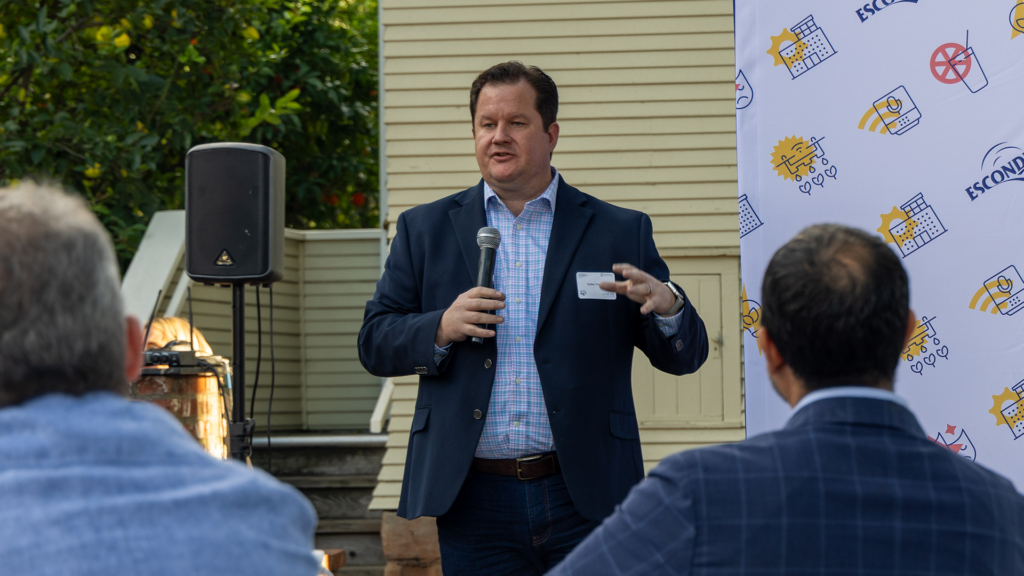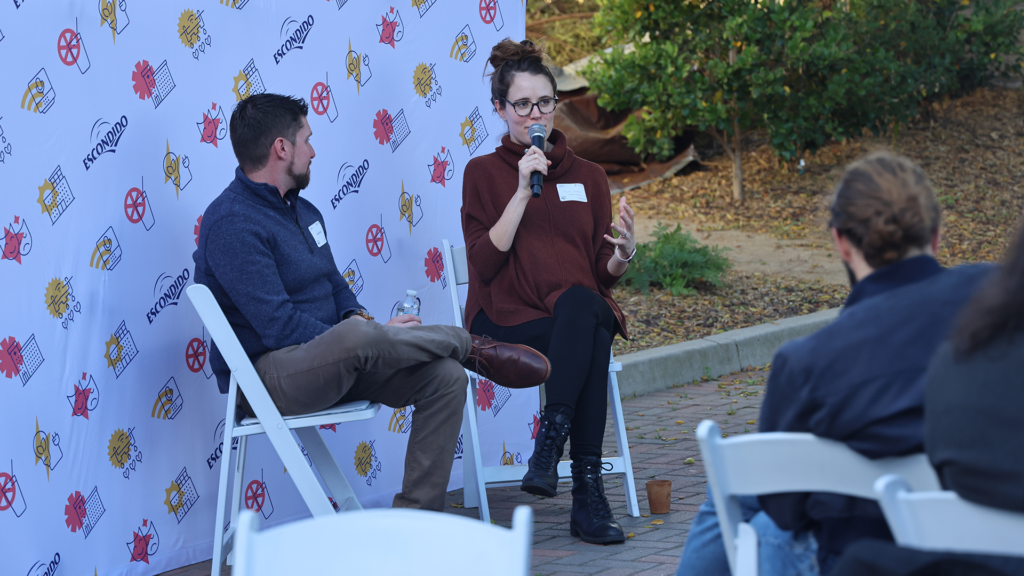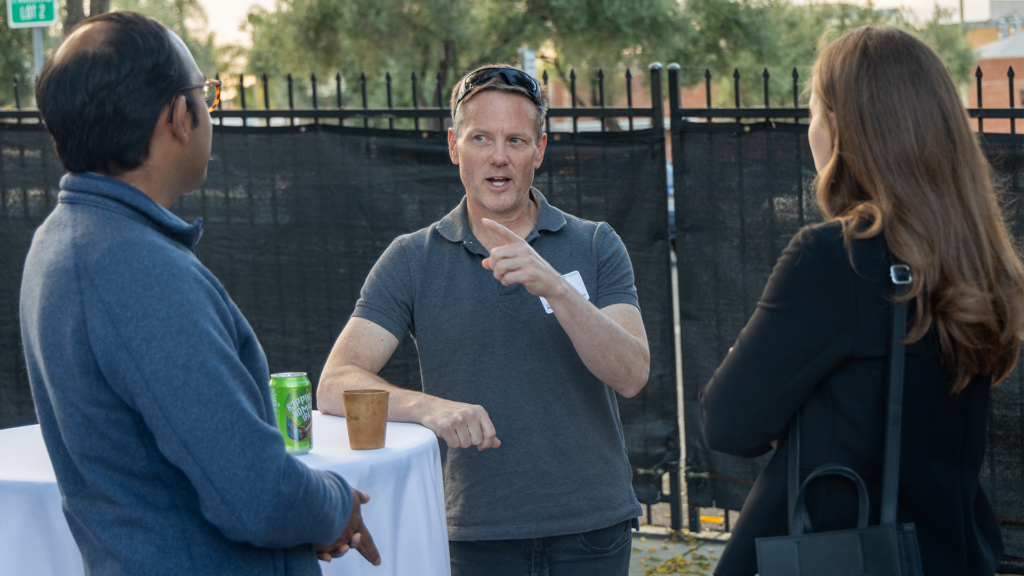
The Escondido AgX Gathering, held at the historic Churchill House in Escondido, California, on January 30, served as a significant meeting point for those at the forefront of agriculture, food production, and technology. Organized by Fresh Brewed Tech Live and sponsored by The VINE, the event went beyond mere networking to foster innovation, collaboration, and thought leadership within the agritech community. It attracted a broad range of participants, including entrepreneurs, seasoned farmers, and venture capitalists, all united in their quest to explore and amplify the synergies between agriculture and technology.
Building a Supportive Agritech Community
Neal Bloom opened the event, emphasizing the importance of community and collaboration in advancing the agritech sector. As a prominent figure in Escondido’s tech and innovation sphere, Bloom’s remarks highlighted the potential for growth and evolution within the industry, encouraging attendees to actively participate and envision a future where agriculture and technology seamlessly integrate.
Jennifer Scheoneck, representing the City of Escondido, added a local dimension to the conversation on global agricultural and technological challenges and opportunities. As Director of Economic Development, her insights highlighted Escondido’s agricultural roots and its emerging tech landscape, positioning the city as an ideal incubator for agritech innovation. “Our city is rich in agriculture and ripe in technology,” she said, underscoring the city’s potential as a nexus for agricultural and technological co-evolution.

Gabe Youtsey, Chief Innovation Officer of University of California, Agriculture and Natural Resources (UC ANR) and co-founder of The VINE, shared the initiative’s efforts to encourage collaboration and innovation between agriculture and technology. Highlighting the growing interest in agritech solutions, Youtsey’s discussion on UC ANR and The VINE’s role in supporting the agricultural community through technology underscored the enthusiasm surrounding technological advancements in agriculture.
“Our journey began with the foundations laid at UC Davis, UC Riverside, and UC Berkeley,” Youtsey said. “Since then, our mission has expanded significantly, driven by a burgeoning interest among UC’s innovators, scientists, and students in critical areas such as agriculture, food security, and climate change. Our commitment is unwavering—to foster the commercialization of cutting-edge technologies, bolster the workforce, and stimulate economic growth.”
Demonstrating Immediate Value

One of the highlights of the Escondido AgX Gathering was the fireside chat with Jayce Hafner, co-founder of FarmRaise. This session offered deep insights into the intersection of agriculture and technology, underscoring the challenges and opportunities present in today’s agritech landscape. Hafner shared her journey and the mission behind FarmRaise, emphasizing the platform’s aim to “help farmers master their finances,” a crucial aspect for the sustainability and growth of farming operations. “What that means in practice is we are a platform that makes it incredibly easy for farmers to ingest all their core farm data in one place,” Hafner explained, highlighting the significance of streamlined financial management in agriculture.
The conversation with Hafner shed light on the broader implications of technological integration into farming practices. She discussed the initial skepticism about technology adoption among farmers and how agritech companies can address this challenge. “Farmers are often the first to adopt a new tool or technology… The core thing we have to unlock for farmers is we have to show the value of the tool,” Hafner noted, reflecting on the need for tech solutions that demonstrate immediate value and ease of use for the agricultural community.
Throughout the chat, Hafner’s anecdotes and insights painted a vivid picture of the potential for technology to transform agriculture. Her emphasis on the importance of building trust with farmers and providing them with tools that can tangibly improve their operations aligned with The VINE’s mission of fostering innovation within the agri-food sector. The dialogue underscored a shared vision of a future where technology and agriculture evolve together, highlighting the critical role of platforms like FarmRaise and initiatives like The VINE in facilitating this evolution.
Facilitating Meaningful Connections

The gathering also featured a unique match-based networking session, underlining the event’s commitment to fostering meaningful connections. This innovative approach deliberately paired entrepreneurs, investors, and industry professionals based on shared interests and goals, facilitating discussions that went beyond traditional networking. Participants engaged in targeted, productive conversations, laying the groundwork for potential collaborations and a community united in advancing agritech solutions for the agrifood sector.
Reflections and Future Directions
The Escondido AgX Gathering not only showcased the dynamic synergy between agriculture and technology but also underscored the collective vision of an integrated future. The insights from Bloom, Scheoneck, Youtsey, and Hafner, along with the networking sessions, highlighted the event’s role as a catalyst for innovation and growth in the agritech sector.
As the agritech landscape continues to evolve, gatherings like these are critical in shaping a future where technology and agriculture not only coexist but thrive together. The dialogue and connections nurtured at the Escondido AgX Gathering reaffirm the potential for significant impact, promising a future of mutual growth and innovation in the agritech domain.